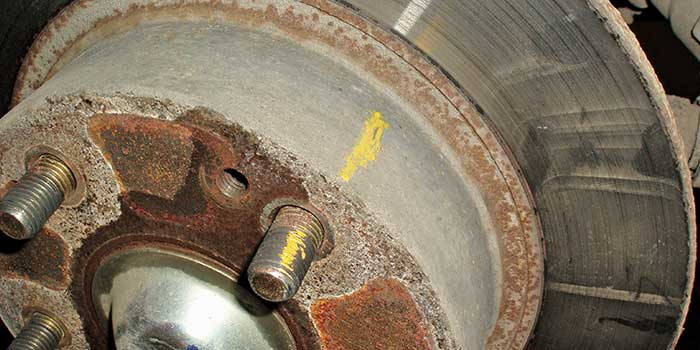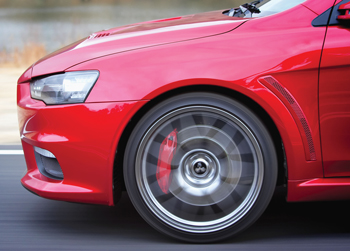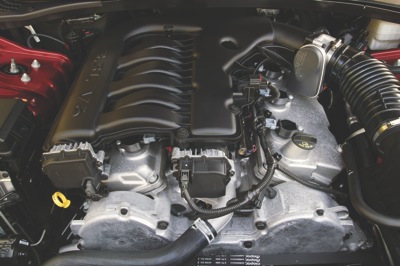The Mathematics Of Selling Brake Services
In this feature, I’ll explore how brake services can be packaged to increase profit, reduce comebacks and reduce labor costs.

Going Undercover on Mitsubishi Undercar Service
Let’s take look at the Mitsubishi line of cars and some of the more common problems you’ll see while investigating the undercar area.

Chrysler 3.5L SOHC V6 Engine (Service Notes)
If ever there was a service opportunity ripe for the taking, Chrysler’s 3.5L SOHC V6 engine (and its 2.7L, 3.2L and 4.0L cousins) is it.

Bearing Straights – Diagnosing Brinelling And Non-Noise Bearing Failures
In the good old days, most serviceable wheel bearings were maintained at least every 25,000 to 30,000 miles during a brake job. During this process, the races, stub axles and cages could be inspected for damage and replaced, if necessary.
Component Connection: Noise Reduction — Replacing a Cartridge Wheel Bearing
While wheel bearing noise is one of the toughest problems for the customer to describe, it’s not unusual for it to come on so gradually that the customer may not even notice it until you mention it after an unrelated road test.
Undercover: Diagnosing a Noisy Wheel Bearing
The classic symptom of a bad wheel bearing is typically a cyclic chirping, squealing or growling noise that changes in proportion to vehicle speed
Undercover: Putting the Brakes on Toyota Hybrid Service Fears
The Prius was introduced in 2001. The rotor and caliper are the same as the Echo, Scion Xa/Xb and MR2. In 2004, Toyota changed the brake system when it upgraded the batteries and electric motor.
Undercover: Getting a Grip on Clutch Service
Before you recommend a particular clutch to a customer, talk to them about how they drive their vehicle and what kind of life and performance they want in a replacement clutch.
Service Advisor: Taking Control of Ride Control
Suspensions are pretty rugged and can take a lot of punishment without any ill effects — at least for a while. But tens of thousands of miles of constant pounding eventually wear out the ride control components and other suspension parts
Real World: Boosting Your Career with Turbocharger Service
One of the most common causes of poor turbo performance is bad shaft bearings, which often results in rubbing or binding between the compressor and turbine wheels and their housings.
